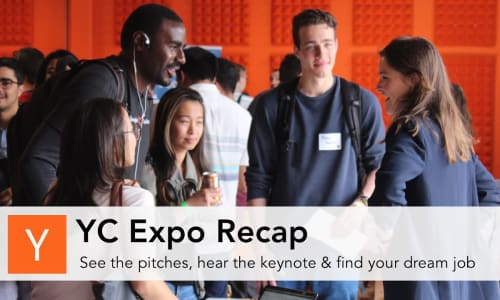See all Y Combinator transcripts on Youtube

Work at a Startup Expo 2019
2 hours 28 minutes 24 seconds
🇬🇧 English

Omnivision Solutions Ltd
- Getting Started
- Create Transcript
- Pricing
- FAQs
- Recent Transcriptions
- Roadmap

2 hours 28 minutes 24 seconds
🇬🇧 English

Omnivision Solutions Ltd